I went to see "
The End of the Tour," the David Foster Wallace film. I knew that, in some ways, I should not have been there. That Wallace's family vigorously opposed the film, gave no permission, did not want this famously private self to be re-enacted.
I respect that.
And. I was engaged, moved, saddened, heartened as I sat there in a packed theater watching the film. What a man, what a mind, what tender nuance was he. That bandana and those dogs. His wanting to be accurate, not shaped, not distorted by his bitter
Rolling Stone interviewer, David Lipsky. His desire to live free of the self-doubt that accompanies both fame and obscurity.
This morning, in the wake of that cinematic experience, I read as much as I could about Wallace's widow, Karen Green—her art, her writing, her memoir. Having watched the film I felt it necessary to balance me out with her words.
Inside a
Guardian interview, I was returned to Wallace himself, to words written to Jonathan Franzen in a 2005 email. Here Wallace is talking about the difficulty of writing past the known beats and grammar. Of continuously going out to a new edge so that one does not repeat oneself. His words brought to mind all the writers I've read who burst onto the scene with something new, refine that new over the next few books (if they are that lucky, few are), and then begin to tread the same water, return to the same tricks, become a parody of themselves, become (I have used this word a lot this summer, for I've reflected, perhaps too much, on all I've seen) a brand.
That's it, right? How do writers not become a parody of themselves? How do they avoid getting locked into their own deliberate constructions?
Wallace, who had so much to teach us, was thinking about that here:
"Karen is killing herself rehabbing the house. I sit in the garage with the AC blasting and work very poorly and haltingly and with (some days) great reluctance and ambivalence and pain. I am tired of myself, it seems: tired of my thoughts, associations, syntax, various verbal habits that have gone from discovery to technique to tic. It's a dark time workwise, and yet a very light and lovely time in all other respects."
 If Karen Green wasn’t a rock star comics librarian before last night’s opening gala, she is now!
If Karen Green wasn’t a rock star comics librarian before last night’s opening gala, she is now!
So: the gist:
A few years ago, 2005 to be exact, the Ancient & Medieval History and Religion Librarian at Columbia University noticed a need for graphic novels to support the faculty and curriculum of the University. She began to systematically meet the needs of her patrons, while also selecting texts for the general collection. (She says the collection started with 3 volumes.)
Then, in 2011, Chris Claremont donated his archives to the University.
This was followed by gifts from:
…among others.
But… Columbia has been in existence since 1754. What else might exist buried deep in the archives? In the rare books collection? Elsewhere in the University?
Well, quite a bit!
This exhibit collects an amazing assortment of items… Lots of original art, rare books, correspondence… and ephemera as well. (Yes, you not only see Wendy Pini’s Red Sonja costume, but her meticulous sketches and planning!)
Some highlights:
- correspondence from Stan Lee to Denis Kitchen
- a comics script from Jerry Robinson
- original editorial cartoons from the Pulitzer Prize committee
- the sketches and final art from the Al Jaffee fold-in Batman variant
- the original art from Wendy Pini’s appearance in Elfquest (wow… the screens!)
- Chris Claremont’s notebooks
- The first page of the script to “Days of Future Past” (which includes some backstory I never considered before…)
- an entire display of “proto comics”, including Ward, Töpffer, and Busch
- William Moulton Marston’s contract for when he was a professor at Columbia
- comics produced by recent students and alumni (WOW)
The highlight for me? An “underground” comic (featured on the exhibition poster) from 1766, libeling a Kings College professor. The plot? He gets a female student drunk on spruce beer (yes, pine tree beer!), gets her pregnant, then pays for her abortion! The comic was confiscated, and used as evidence in the college’s disciplinary action against the students! You can read the sordid tale here. (SFW)
The exhibition opened Monday, with a reception last night. Here are some photos taken from the cheap seats, with a bit of commentary:
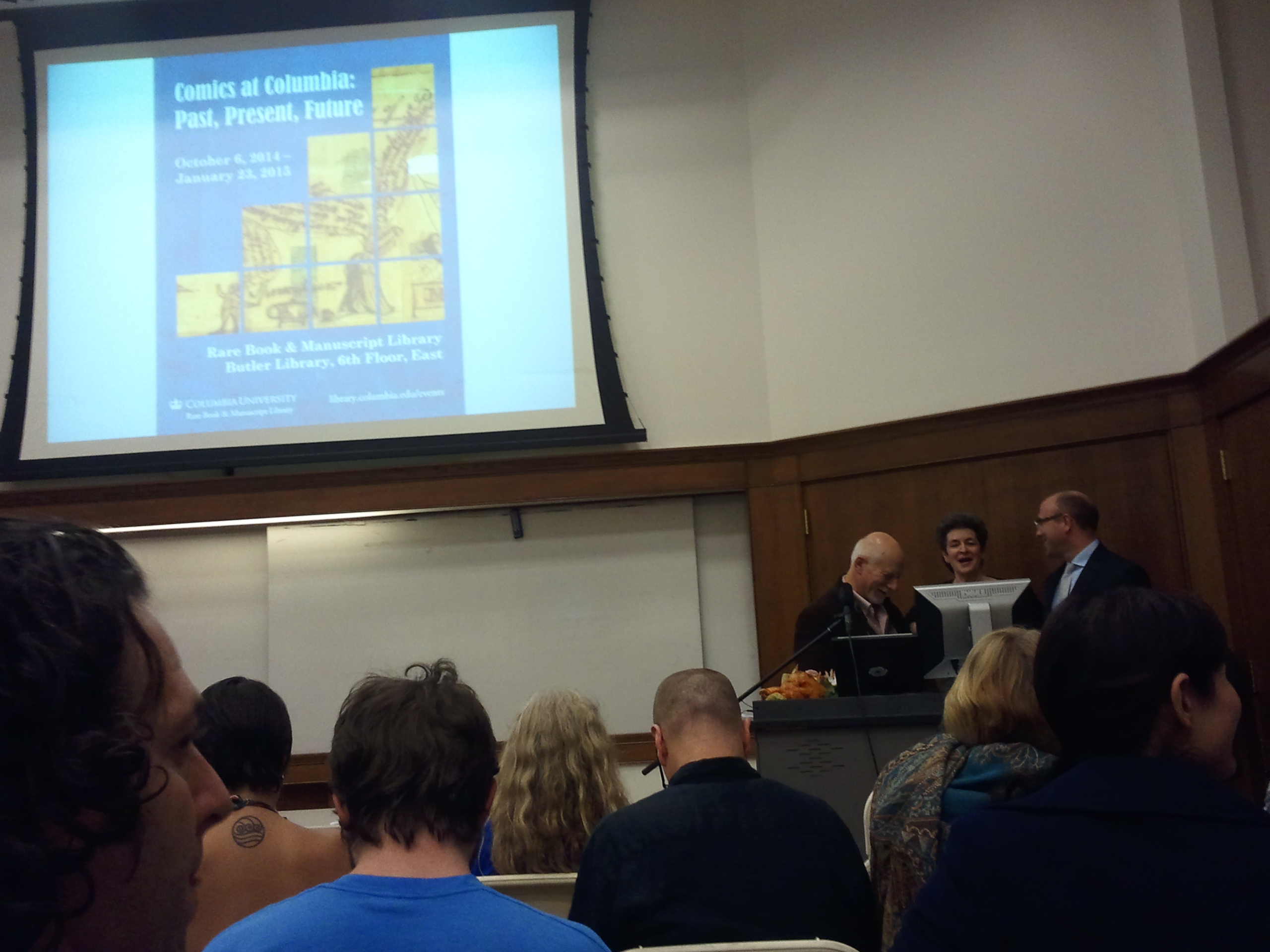 Chris Claremont, Karen Green, and Sean Quimby chat before festivities begin. Mr. Quimby, is “fresh off the bus” from Syracuse University, having just been appointed Director of the Rare Book & Manuscript Library. He gave his bona fides as a long-time comics fan, holding up a much-loved copy of the X-Men graphic album “God Loves, Man Kills”. (Syracuse itself has a decent archive of comics artists!)
Chris Claremont, Karen Green, and Sean Quimby chat before festivities begin. Mr. Quimby, is “fresh off the bus” from Syracuse University, having just been appointed Director of the Rare Book & Manuscript Library. He gave his bona fides as a long-time comics fan, holding up a much-loved copy of the X-Men graphic album “God Loves, Man Kills”. (Syracuse itself has a decent archive of comics artists!)
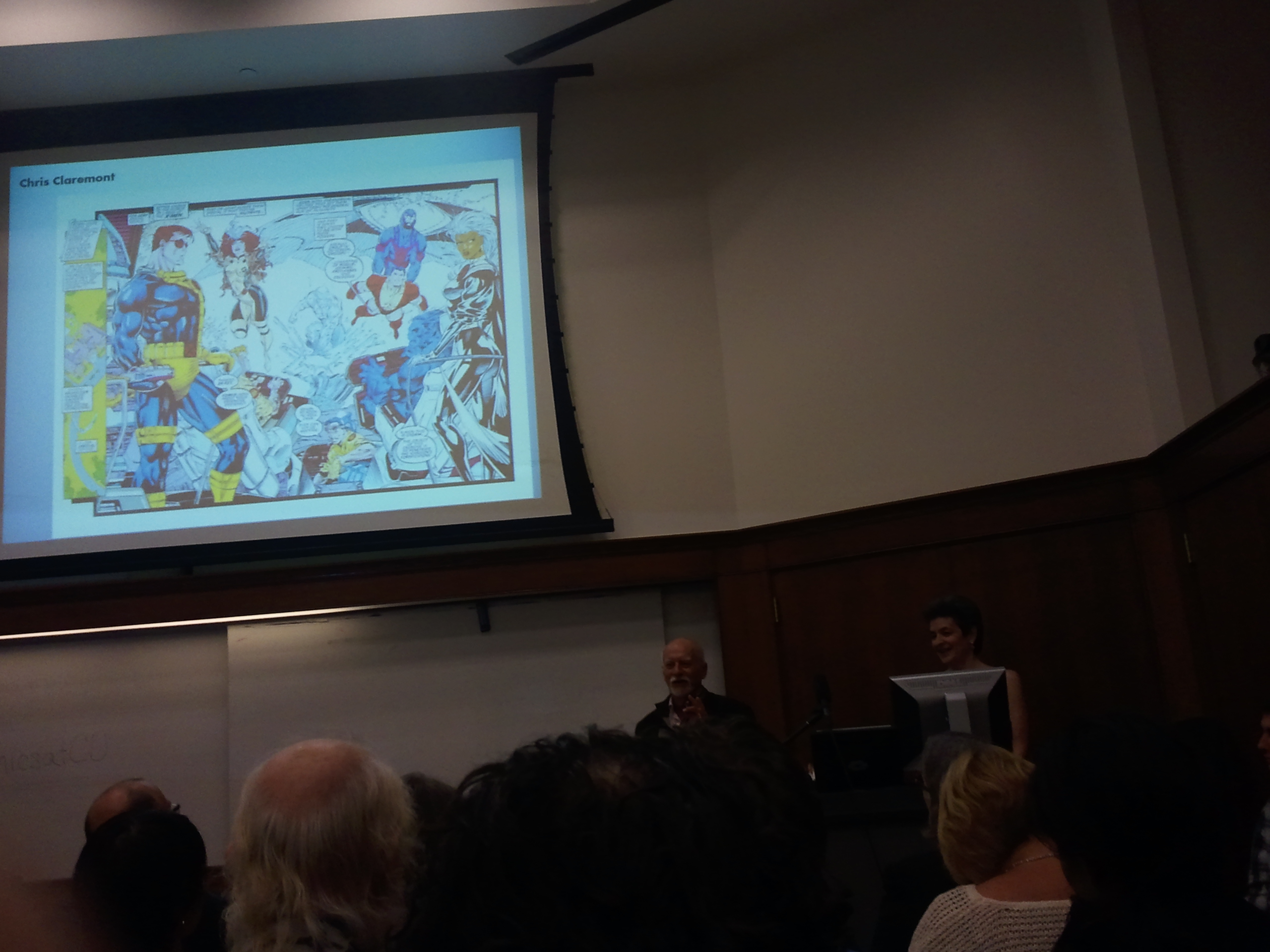 Chris Claremont gets the ball rolling, as each participant was given two slides and five minutes to speak.
Chris Claremont gets the ball rolling, as each participant was given two slides and five minutes to speak.
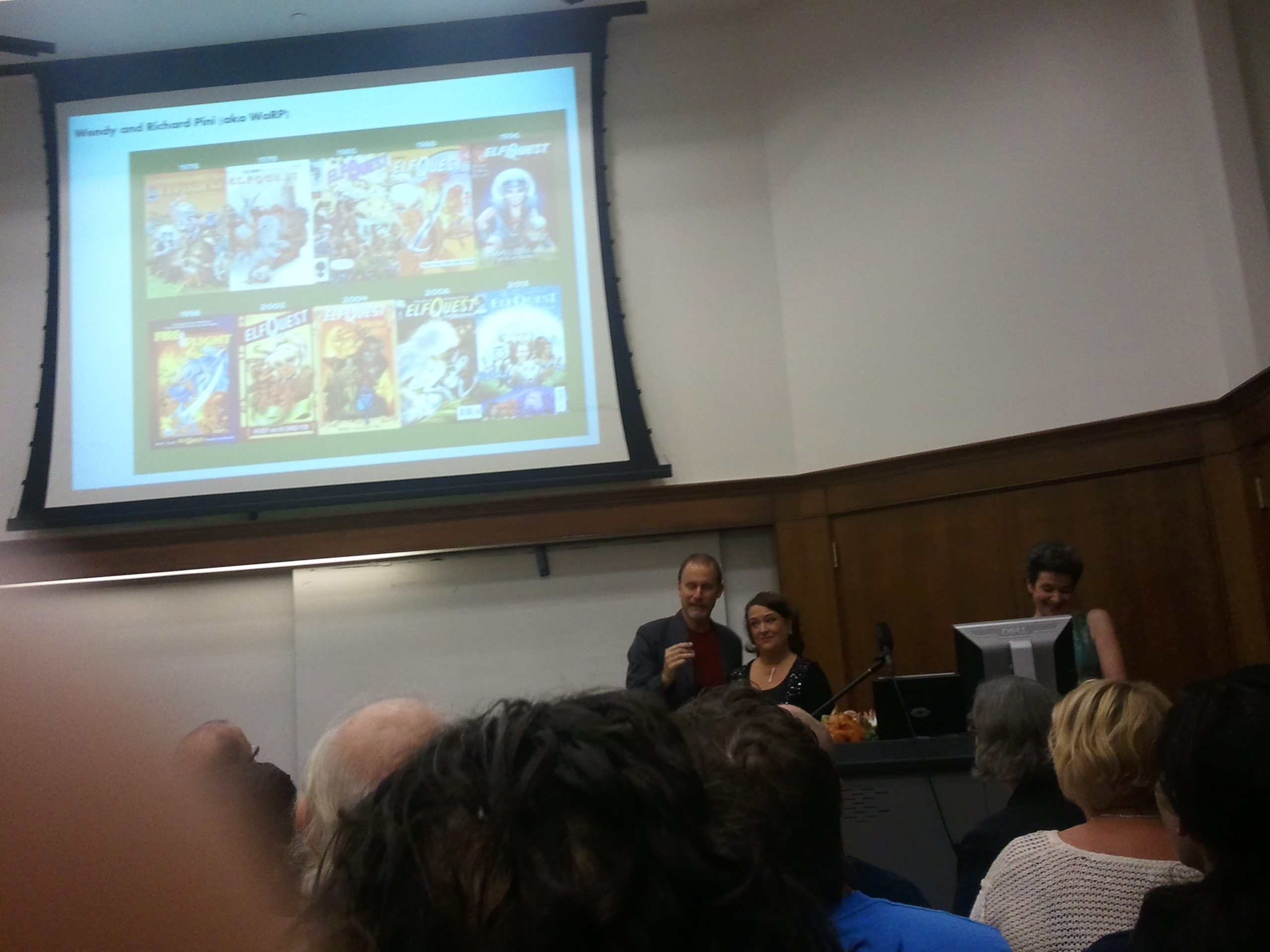 Wendy and Richard Pini.
Wendy and Richard Pini.
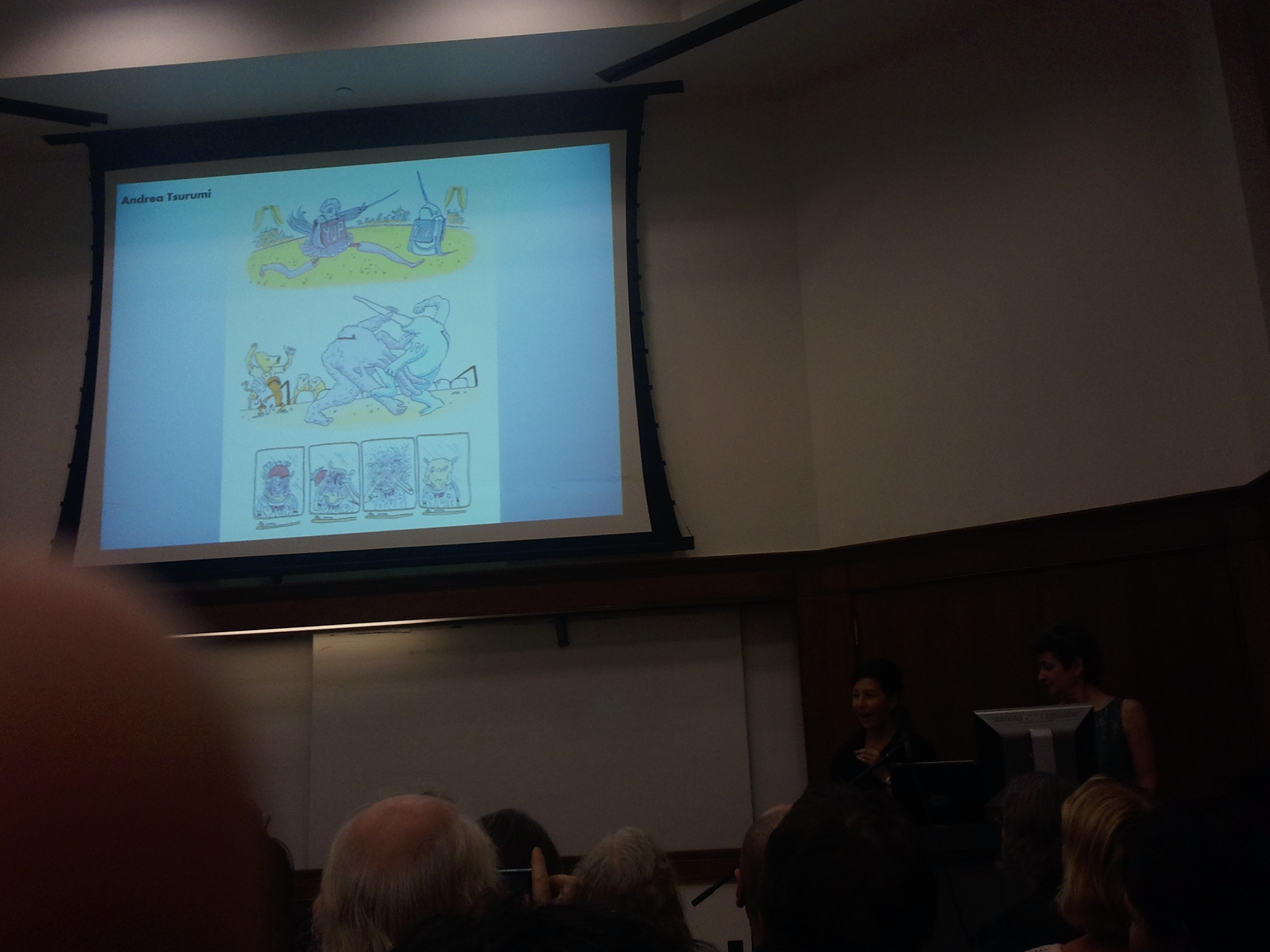 Andrea Tsurumi
Andrea Tsurumi
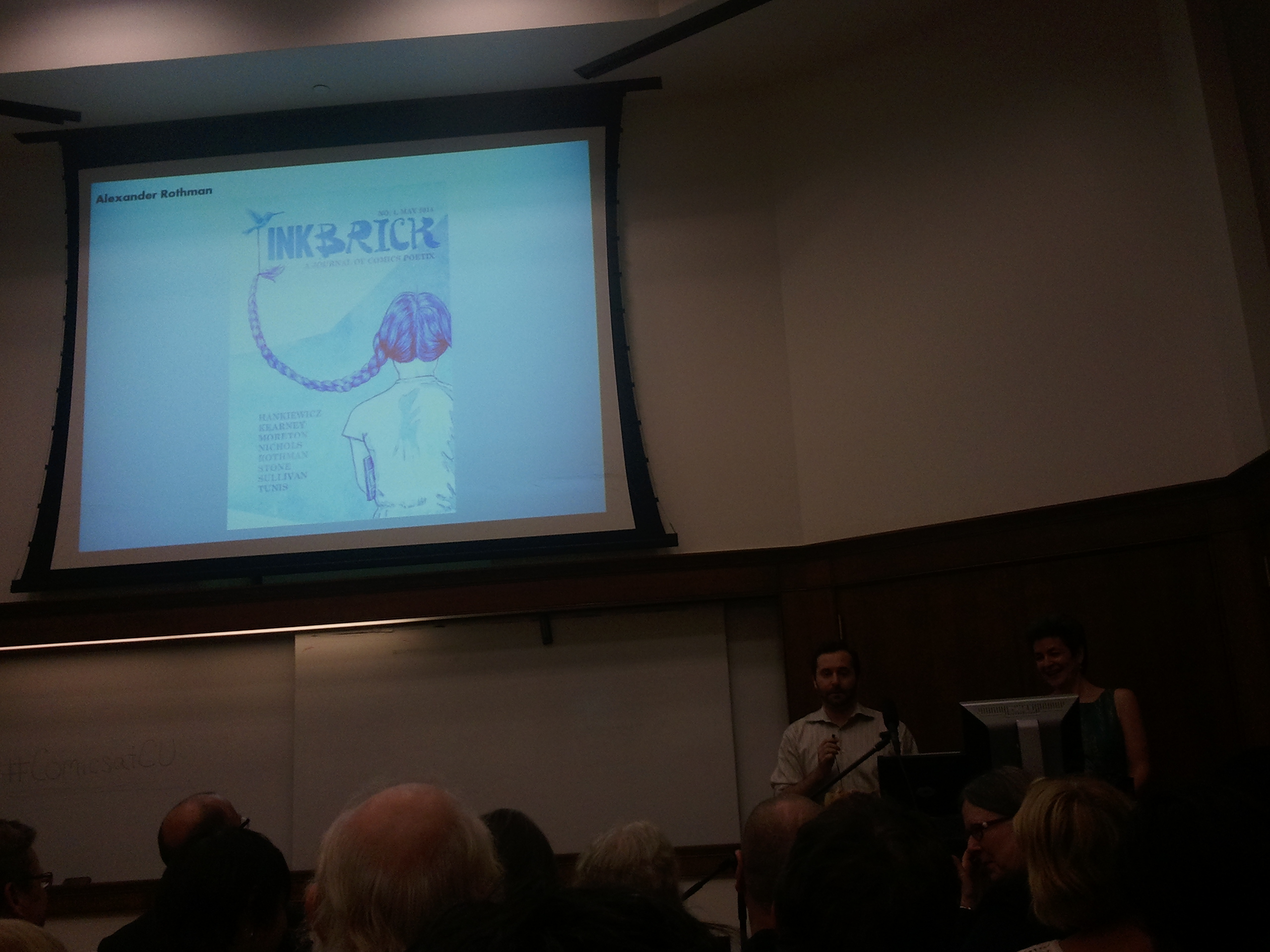 Alexander Rothman, creator of poetry comics
Alexander Rothman, creator of poetry comics
 Peter Kuper.
Peter Kuper.
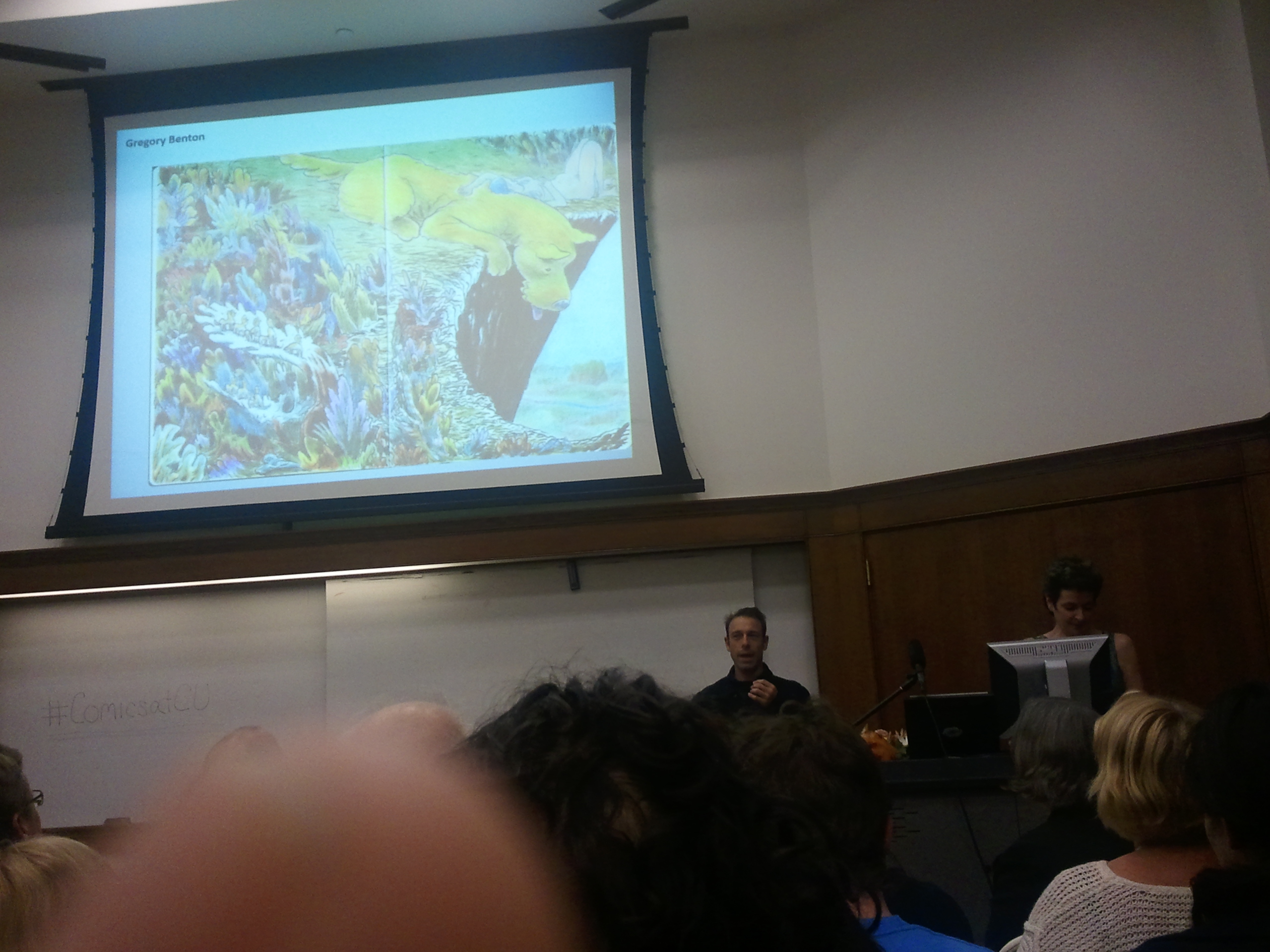 Gregory Benton.
Gregory Benton.
 Sophia Wiedeman
Sophia Wiedeman
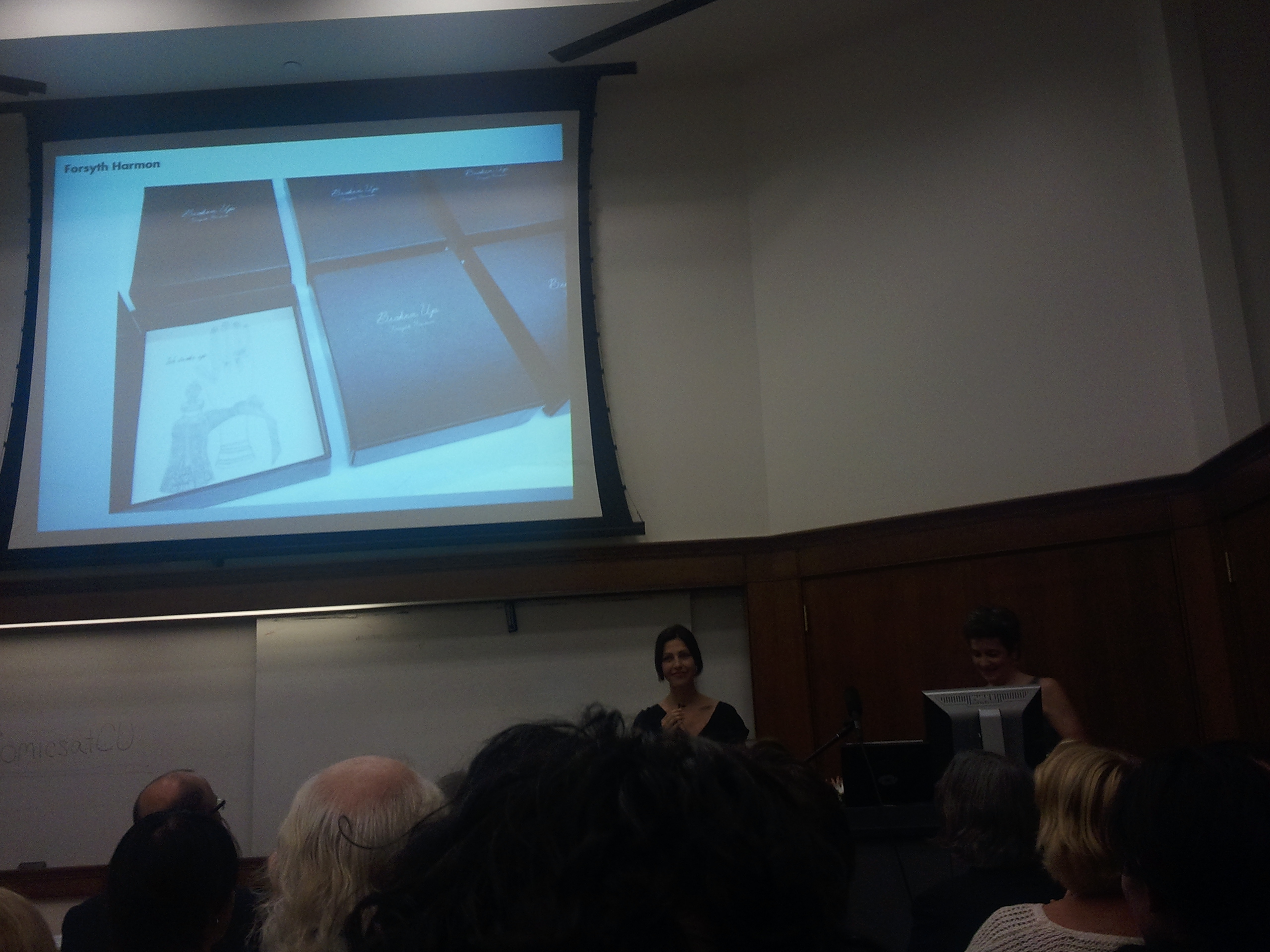 Forsyth Harmon. This is a boxed set of comics titled “Broken Up”, produced while she was a student at the Leroy Nieman Center for Print Studies at Columbia. As at other art schools, comics storytelling is cross-pollinating with art techniques at Columbia to produce new and interesting work!
Forsyth Harmon. This is a boxed set of comics titled “Broken Up”, produced while she was a student at the Leroy Nieman Center for Print Studies at Columbia. As at other art schools, comics storytelling is cross-pollinating with art techniques at Columbia to produce new and interesting work!
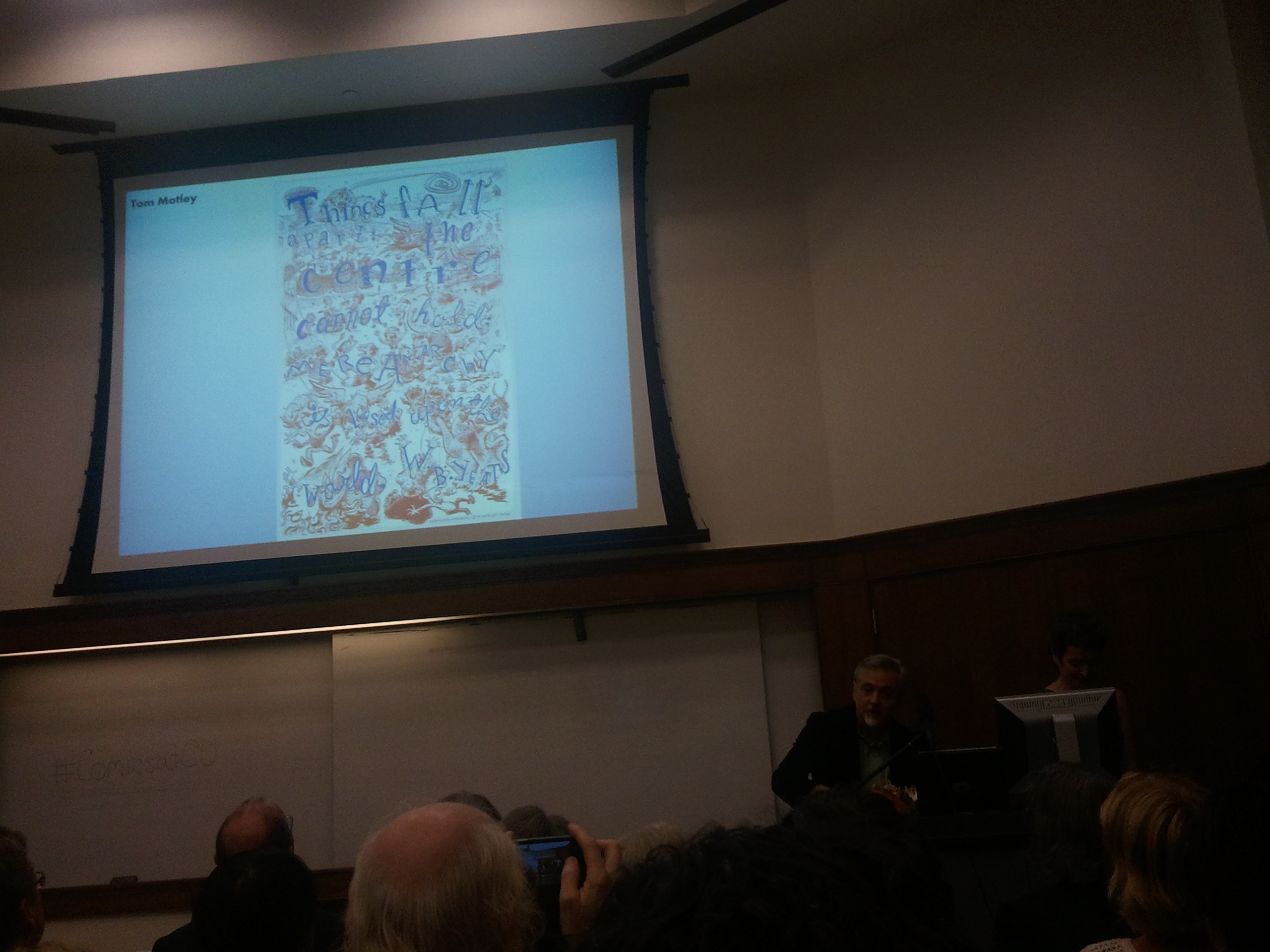 Tom Motley. With Al Jaffee in the audience, Motley teased a double fold-in.
Tom Motley. With Al Jaffee in the audience, Motley teased a double fold-in.
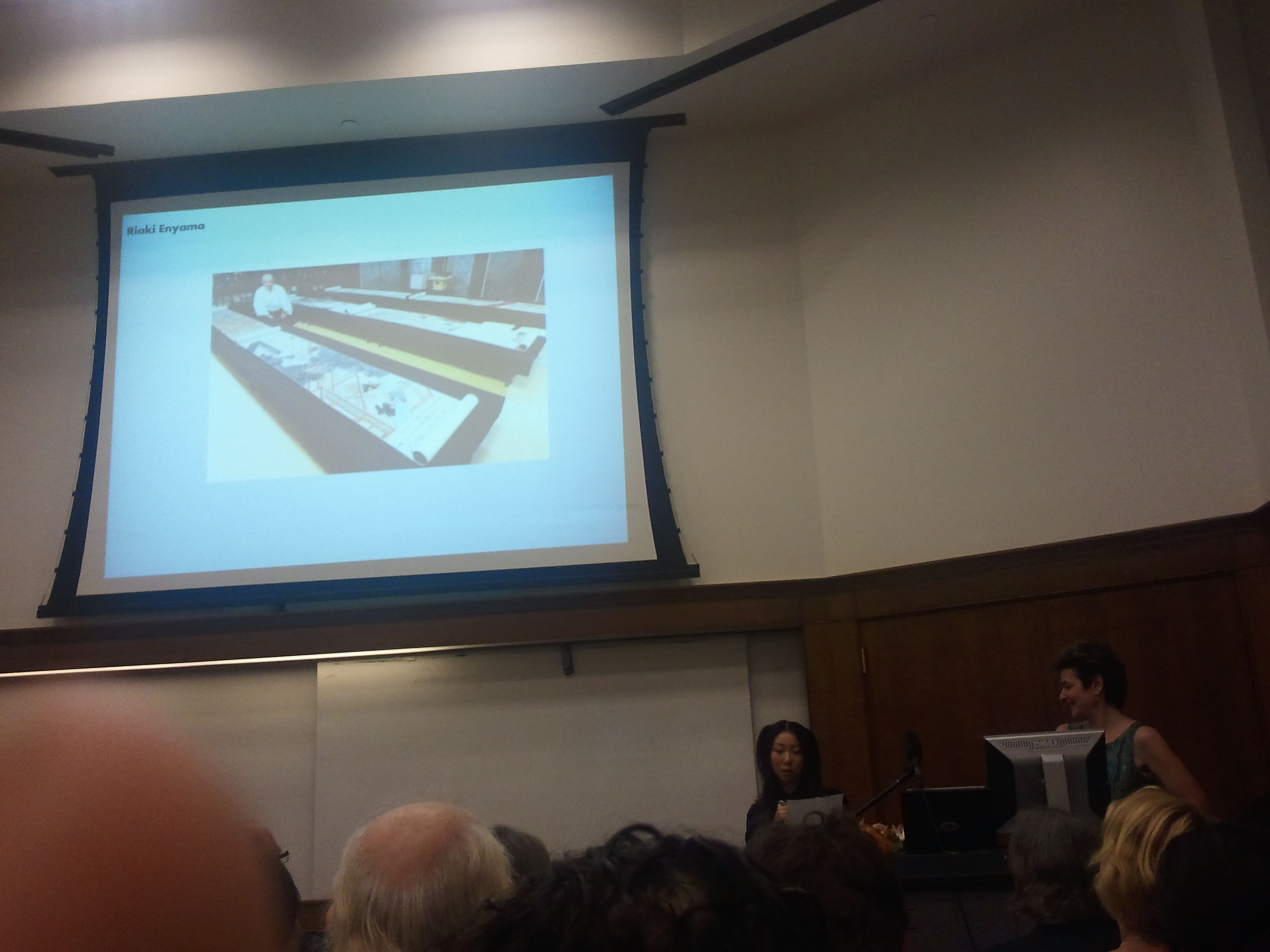 Riaki Enyama. Yes, that is her comic! Using the Japanese Emakimono storytelling scroll tradition, she chronicled her experience as a foreign student at Columbia.
Riaki Enyama. Yes, that is her comic! Using the Japanese Emakimono storytelling scroll tradition, she chronicled her experience as a foreign student at Columbia.
 Paul Levitz. The Jimmy Olsen of comics professionals!
Paul Levitz. The Jimmy Olsen of comics professionals!
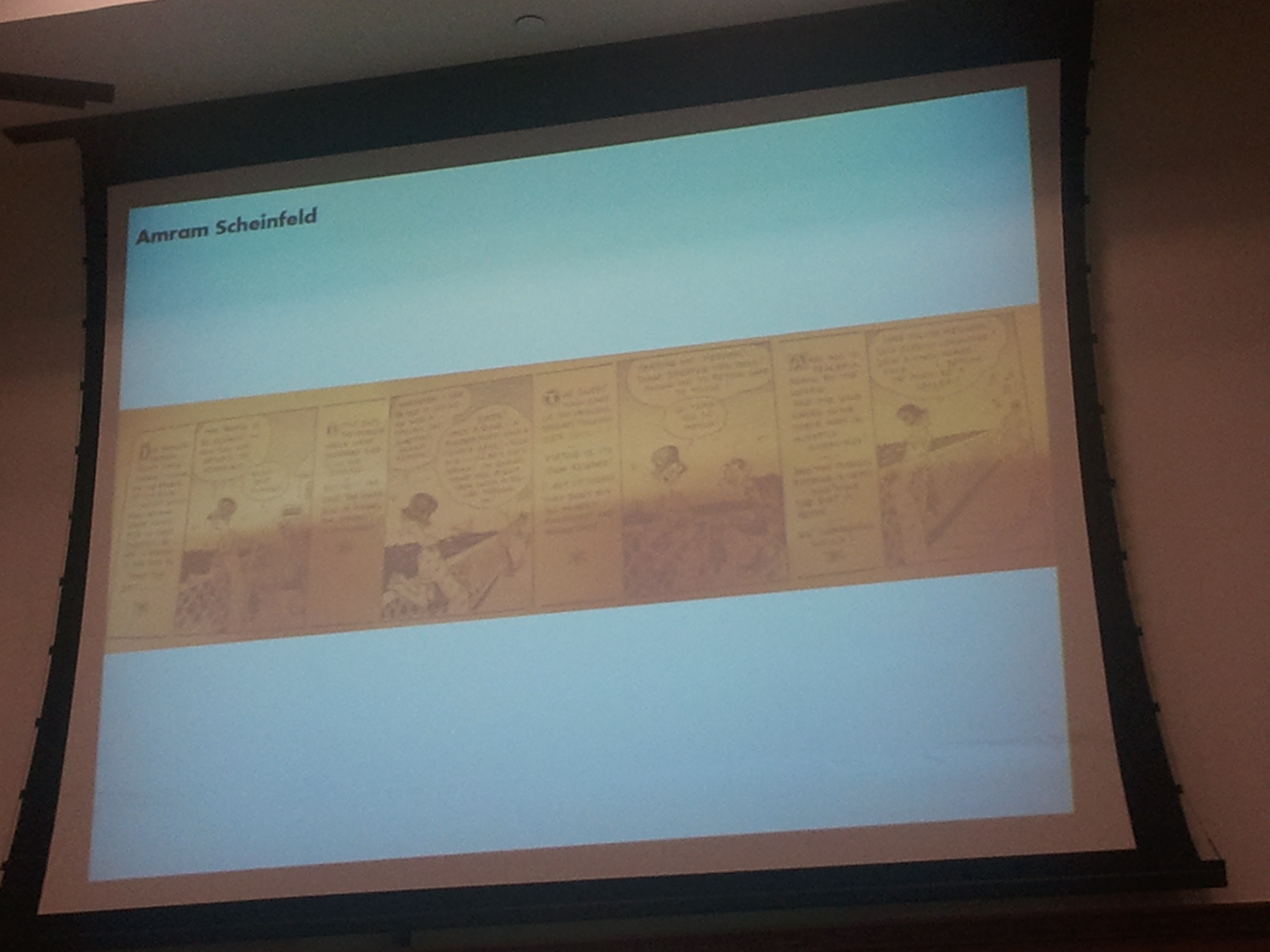 …and, a teaser from Karen Green, of a forgotten cartoonist: Amram Scheinfeld. What’s his story? Visit the exhibition and find out more!
…and, a teaser from Karen Green, of a forgotten cartoonist: Amram Scheinfeld. What’s his story? Visit the exhibition and find out more!
The event was recorded, and should be available online soon!
As the first of several “Comic Book Roundtable” events to be held at the Soho Gallery of Digital Art under the auspices of gallery owner John Ordover and former Marvel editor, author, and educator Danny Fingeroth, this event exploring the life and legacy of Dr. Frederic Wertham was planned for the occasion of Wertham’s 118th birthday, but in the lead up to the event, recent developments in scholarship about the controversial comic reformer shed new light on the evening’s subject matter. In February 2013 Librarian, professor, and scholar Carol Tilley discovered, after examining Wertham’s papers held by the Library of Congress, that some of Wertham’s methods and reports were questionable, sparking debate in comics scholarship and among comics fans.

“Surely You’re Joking Dr. Wertham” hit the controversy head-on by bringing together a distinguished panel for discussion, including Tilley, comics writer, editor, and educator Denny O’Neil, author and educator David Hajdu, practising physician, psychiatrist, and author Sharon Packer, and author, editor, art director, and cartoonist Craig Yoe. The Soho Gallery provided excellent accompaniment to the event in the form of Wertham-related images and quotes displayed as a digital exhibit, and hosting a reception afterward.

The evening opened to a thoroughly packed-in audience, among whom were many scholars and authors who have shown a public interest in Wertham’s career and legacy, including James Reibman, the official Frederick Wertham biographer designated by Wertham’s estate. Host and moderator Danny Fingeroth provided an introduction to Wertham in the form of slides including pictures of Wertham in and out of official capacity as a clinical psychiatrist working with children, and also reminded the audience of the other books Wertham authored aside from his now legendary Seduction of the Innocent, a critique on the “influence of comic books on today’s youth”, published in 1954. This placed Wertham within the context of other cultural reactions of the time that questioned the sex and violence being depicted in comics as appropriate for young readers.
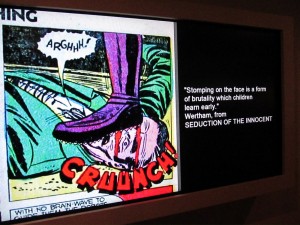
Tilley started off the panel discussion by explaining exactly what her recent research has uncovered about Wertham’s work. While her original intention was to locate materials relevant children’s education, she found “other things” that she didn’t expect to find among Wertham’s documents which she found “well-organized” in a “couple of dozen plus boxes” at the Library of Congress. The documents included copies of Wertham’s other research papers and speeches spanning his career, among which she found “discrepancies” and “some indication that he did things like combine the testimony of kids” or “broke apart” the testimony of one child “into four or five” in order to use quotes. This practice also resulted in evidence of “deleted or added” phrases from the children’s testimony that Wertham presented in Seduction of the Innocent and other works. This resulted, Tilley said, in a general “perception” of evidence in Wertham’s book that was “not the same as the actual case” of his research materials. When questioned about whether these changes were negligible or whether they altered the meaning of the children’s testimony, she confirmed that these “additions and word changes did change the meaning of testimony”. While Wertham’s book has often been criticized for its “lack of attribution” in footnotes or bibliography, Tilley feels that she has “seen personally” that his use of sources was not exacting enough. For those interested in Wertham’s legacy, this was something of a bombshell, though Tilley has been public about some of these findings previous to the evening’s discussion.
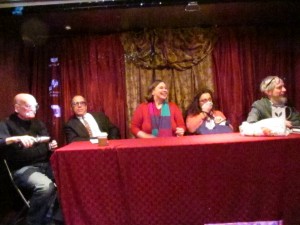
Hajdu then commented on Wertham as a figure, reminding the audience that Wertham is often a “handy symbol” of a wider movement against comic book excesses, and even a “personification” of the “cynicism toward comics in the late 40’s and 50’s”, even though he didn’t start this trend personally. Hajdu explained that even “newspaper comics incited criticism” prior to Wertham’s career and were often perceived as “crude, anti-literate” and examples of “defiant behavior” that raised public concern. The Catholic Church, particular, he noted, were active in inspiring state legislation against comics, due to their belief in the “power of aesthetics and the power of art” for both positive and negative influences on human behavior.
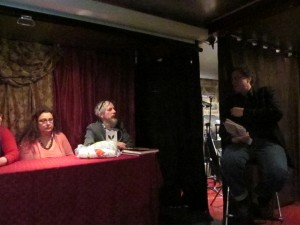
[Packer, Yoe, and Fingeroth]
O’Neil, himself raised Catholic, confirmed that his “first encounter with the (comic) witch hunters was in the pages of The Catholic Digest” and that he, as a young person “read and believed” that superhero comics, particularly, were potentially harmful. He related, to the audience’s amusement, that former Marvel editor Roy Thomas “as a kid” had participated in a book burning in Missouri where he “burned comics he was not interested in”, but rescued others he liked. Tilley briefly added that she had discovered evidence that librarians, too, had participated in comic burning and attempted to keep them out of libraries during this period because they were seen as “disruptive”.
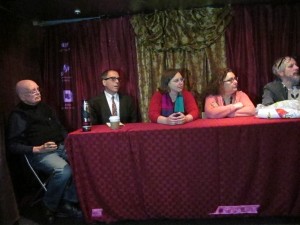
Packer suggested that Wertham’s book title, Seduction of the Innocent, might have spoken particularly to a Christian demographic because of its suggestion of the massacre of the innocents by King Herod related in the New Testament of the Bible. This led to a reassessment among the panellists of Wertham’s title, since its original version was “All Our Innocents”. Fingeroth pointed out that this change made the title “very pulp sounding” and therefore more sensational.
Yoe’s background on the subject of juvenile delinquency as an author, and also his discovery of the “fetish art” of Joe Shuster confirmed that there were real-life implications for the more violent aspects of comic art, such as the case of the Brooklyn Thrill Killers who killed indigent people and molested women and when interviewed by Wertham as an expert witness, confessed to being inspired in their deeds by Shuster’s artwork. Yoe, however, prompted a wide-ranging and at times heated discussion on the subject of exactly how and when Wertham’s papers at the Library of Congress had been made available for research purposes. Both Yoe and Hajdu, upon requesting access in the past, had been denied use of the papers since they were “sealed” until the children who participated in the studies had passed away. “In many ways, I respect Dr. Wertham”, Yoe said, but “the Library of Congress is our library” and its contents “should be seen” regardless of the circumstances behind their compilation. Outspoken attendee and Wertham biographer Reibman, who was granted access to the papers at a much earlier date in order to work on his book, disagreed with Yoe’s statement in favor of “freedom of information”, arguing that sealing Wertham’s papers at the library was part of the “terms of the gift” to the library. Reibman’s frequent interjections on behalf of Wertham during the event contributed to a rather heated atmosphere.
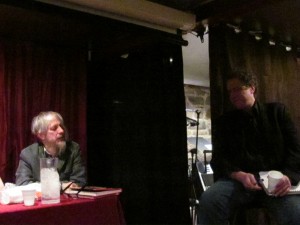
Yoe questioned further why some individuals, and not others, were then granted access despite the terms of the gift. Hajdu chimed in that he had requested access “dozens of times” but had been denied despite his academic credentials. Yoe asked Tilley if, based on her experience as a librarian, this discrepancy was “unusual” or not. Tilley confirmed that in her experience, the sealing of the papers while at the Library of Congress and then granting access to only those individuals sanctioned by the estate of the deceased, was indeed “unusual”. Attendee Karen Green, Graphic Novels Librarian at Columbia University, also commented that while “archives can be restricted”, for public documents this practice is “not usual”. Tilley provided further information about the situation by explaining that she was obliged to sign an agreement with the Library of Congress about the materials she accessed, even though a large portion of the Wertham papers consisted of “newspaper clippings” which “shouldn’t be restricted” anyway. Yoe brought some levity to the rapid fire questioning and often terse dialogue between he and Reibman by pointing out that Hajdu closely resembled a young Frederic Wertham and ought to have just turned up at the library, saying “I am here to see my papers”. Though Hajdu found the comparison amusing, he said “That’s the most offensive thing I’ve ever heard”.
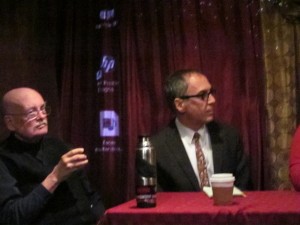
[O'Neil and Hajdu]
Fingeroth then gathered the reigns of the discussion as moderator to direct attention back to the panelists and away from the discursive arguments breaking out among audience members. Fingeroth asked O’Neil, specifically, if he had felt any “lingering hesitation” about comics after his experience with The Catholic Revue in childhood. O’Neil related that Wertham’s legacy, but particularly the Comics Code had impacted his career in comics. He was involved in “several public arguments” with administrators at comics publishing companies, wherein comics supporters felt the need to argue “comics are good, not evil anymore”. O’Neil’s personal feeling has always been, and still is, he said, that “If it’s censorship, it’s bad”, and often felt frustrated by the “vagueness of the language” in the Code itself, often leading comics creators to create elaborate avenues to get around the letter of the Code. He related a particularly frustrating incident where an IRONMAN story involving a “six story tall monster” crushing a police car was censored because it “showed disrespect to the police car” even though it also showed policemen being very brave in their fight against the monster. This kind of “idiocy” in the Code he particularly objected to, and added his motto that “blind worship of authority figures whether or not authority figures had any authority” should never be supported.
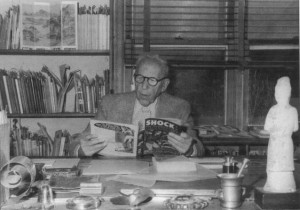
At this point, it was relevant to clarify that Wertham was not the founder of the Comics Code, though his work certainly paved the way for its development. Yoe reminded the audience that Wertham was, in fact, a progressive who was in support of the freedom of the press. It was more that Wertham “created the climate”, O’Neil supplied, which led to the Senate hearings, which led to the drafting of the Code. Both Yoe and O’Neil agreed that comics publishing was, in fact, in a very low economic position at the time of the Senate hearings anyway, due to the rise of paperback novel sales and TV watching. Yoe and O’Neil continued to discuss whether a “rating system” couldn’t have been created, rather than the unilateral Comics Code, in order to steer children away from more disturbing comics. Hajdu pointed out that the rating system was not in effect in Hollywood, by comparison, until the 1960’s, so there was not a particularly clear model to instate for comics at the time.
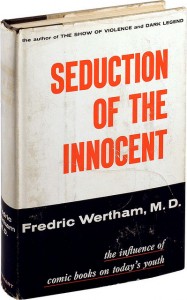
Fingeroth asked the panelists, and in particular, Packer, whether Wertham’s research was purely “anecdotal” or whether he furnished “hard statistics” when working with children. Packer provided some context as a clinical psychiatrists about the methods of the time during Wertham’s career. She compared Wertham to Sigmund Freud and pointed out that though “Freud was celebrated at that time”, “much of his original psychological literature” was “just as baseless” as Wertham’s methods. Tilley added that her survey of Wertham’s papers revealed that his “data was rich”, but it was just “how he used it rhetorically” that was “questionable”. Yoe commented that even though his rhetorical use of his data might lead us to view Wertham with increased suspicion, in the big picture, Wertham made a “pretty good case. Many comic books were not good for young children” in term of their content.
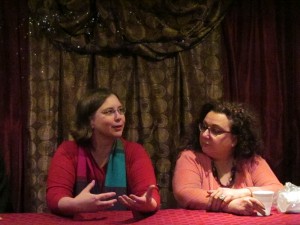
[Tilley and Packer]
Fingeroth took the question to a finer point. Did Wertham, he asked, in the opinion of the panelists, “take too many liberties” or not? Tilley stood her ground by asserting that “scientific investigation” requires accuracy, and a failure of accuracy is troubling from a scientist. Tilley added that her “personal sense” from working with the papers is that Wertham “cared more about getting rid of the comic book industry” than about his public cause of helping children develop in a psychologically healthy atmosphere. Though he certainly “cared for kids”, she reminded, she still felt that Wertham used children as “leverage” to achieve this greater goal of attacking the comics industry. One of the things that gave her a less than sterling impression of Wertham’s personality was discovering detailed transcripts that he “noted meticulously” of phone conversations that contained potentially harmful gossip about people who he saw as enemies in his career. He “collected information”, she said, “looking for weak spots” in the lives of people he wanted to undermine, particularly people who acted as “consultants for the comic book industry”.
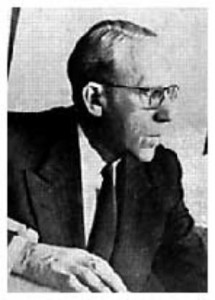
Fingeroth asked about Wertham’s movement, in his later career, toward criticism of the film industry and whether Wertham might have seen “comics as a stepping stone to a higher agenda” as a “career path”, but the general consensus among panelists seemed to be that comics were more easily attacked as a less profitable industry early in Wertham’s career, and that the tide of criticism had generally turned toward film around the time of Wertham’s developing interest in film. Film itself had, by the mid to late 60’s, become more overtly violent with works like Bonnie and Clyde.
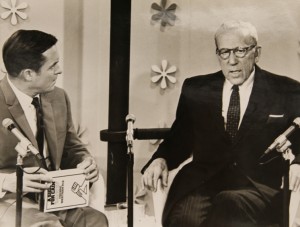
The rather charged atmosphere during the panel discussion gave way to an extensive question and answer period involving the audience and spanned a number of subjects. Did the distaste the comic book industry came to feel for Dr. Wertham result in a generally negative portrayal of psychiatry within comics? Yoe agreed that there are certainly plenty of “sinister psychiatrists” portrayed in comics tradition, and Packer supplied examples from Batman mythology including the Arkham family. O’Neil added that the character Harley Quinn was originally assigned to “cure” the Joker of his madness and instead was “driven nuts” herself. A more pointed question was posed about whether the possibility that Wertham skewed his evidence really made the questions he was asking about the role of comics at the time irrelevant. Hajdu fielded this question by commenting that the “weakest criticism of Wertham is that comics can’t affect minds and hearts”. As an art form, Hajdu argued, comics certainly do have impact and can “transform people”. “Comics have that power”, he reminded.

O’Neil weighed the issue by confessing that as a comics creator “You launch a given work and you have no way of knowing how it’ll bounce” and he often worried during his early career what impact particular comic stories might have on “kids already imbalanced”. O’Neil gave and example of his decision-making when he declined to include a “martial arts move” in one of his comics because it was “simple and damaging” and judged that kids might too easily learn to implement it. The audience, of course, immediately wanted O’Neil to demonstrate the deadly move, but he refrained in the interest of safety. For the same reason, O’Neil never allowed Molotov cocktails in his works, sure that it was too much of a “temptation” for kids to “see if it would work” building their own.
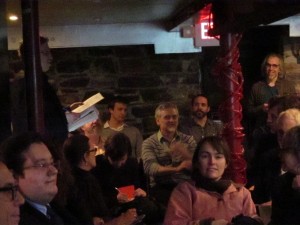
The Beat’s own Heidi MacDonald asked a rather burning question from the floor, one that continues to puzzle readers and comics historians alike: “Why do you think he attacked comics specifically? What did he hope to get out of it?”. The panelists answered in various ways. Yoe felt pretty strongly that Wertham was, in fact, motivated primarily by the fact that he “cared about kids” and was worried about the impact of comics. Packer analyzed Wertham a little by pointing out that Wertham himself, despite being married for many years, had no children of his own and this might have created a kind of “displacement” of concern for children that drove him to extremes. Hajdu simply stated that he felt Wertham to be “attracted to sensationalist cases” whether as an expert witness in extreme criminal cases or his research. He was, Hajdu said, a “publicity hound” at heart. Even Yoe added the admission that without a doubt Wertham had a “raging ego” driving his career.

Questions continued to circle back to the central role of Tilley’s new research on Wertham’s inconsistencies. How do we reassess Wertham based on the incorrectly conveyed details of his research, which clearly skewed his information in order to more sensationally and fundamentally support his thesis, when the “big picture” of his message, that extreme violence and sex in comics can be inappropriate for child readers, does seem sensible? Fingeroth presented a list of Wertham’s more “progressive” tendencies, stating that it’s possible to “go through a checklist of Wertham’s beliefs and agree except for comics” and respect many of his social contributions.
The final assessment of the panelists revealed some consensus out of a wide-ranging interrogation of Wertham’s method and legacy. O’Neil reminded the audience that Wertham was certainly not the “black-hearted villain” that many comics fans feel him to be, but he did detrimentally present those working in comics, “demonizing” them and making them out to be the “seducers and corruptors” of society, a crusade that damaged comics for decades to come. Yoe felt that the fundamental problem with Wertham’s whole approach to his subject was not necessarily the assumption that comics could be damaging to young minds, but that he “didn’t see that comics could be an art form”, and never commented on their positive potential as an “educational” resource. Yoe left the audience with the question, a lingering one, “Why couldn’t he see that?”. If Wertham had seen the potential of comics as a positive force, no doubt our current view of his work would also be more balanced on the whole.
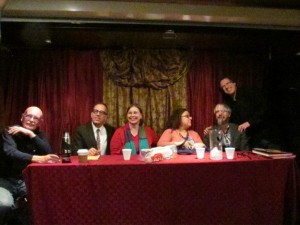
[The panelists and their moderator]
A predictably lively, but amicable, discussion period followed during the reception for the event, but if attendees expected definitive answers about the implications of Tilley’s new research on Wertham, they were left to their own devices. The panel discussion did provide solid context for Wertham’s life, work, and even a little for his motivations, as well as some solid information on what exactly Wertham’s failings as a researcher might be. Whether audience members were “pro-Wertham” or “anti-Wertham” initially, the discussion opened up new facets of his personality and work for further thought. Frederick Wertham may be less of a mystery now in the light of new research, but if anything, he’s even more of an enigma, confirmed as a complex figure. Learning more about Wertham changes perception of comics history, and that’s bound to change even more as scholars pay closer and closer attention to the records left behind in collections, personal archives, and thankfully, libraries.
The Comic Round Table events will continue this Spring at the SOHO Gallery for Digital Art with another hot topic in comics right now, the openly anti-gay position of Orson Scott Card and his work on SUPERMAN entitled “The Man of Steel vs. Orson Scott Card” on April 10th.
Hannah Means-Shannon writes and blogs about comics for TRIP CITY and Sequart.org and is currently working on books about Neil Gaiman and Alan Moore for Sequart. She is @hannahmenzies on Twitter and hannahmenziesblog on WordPress.
On January 23rd, Columbia University Library acquired a double-bill of Golden Age related comics materials, including the research materials Larry Tye compiled to write his Superman biography, The High Flying History of America’s Most Enduring Hero, and six 1940’s BATMAN scripts from the estate of Jerry Robinson. These add to the ongoing Rare Book and Manuscript Collection at Columbia under the steerage of Graphic Novels Librarian Karen Green, already including Chris Claremont’s 2011 X-Men archive donation, and the large ELFQUEST bequest announced in early March. Columbia University, and a standing room only audience on March 7th, decided it was time to celebrate the donation, with a panel and reception entitled “Comics at Columbia: The Golden Age”, fortuitously coinciding with Will Eisner Week throughout the country.
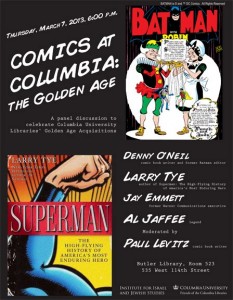
The panel was moderated by Paul Levitz, educator, writer, and former president of DC Comics, and included Jay Emmet, former Warner Communications executive responsible for some of the first licensing of DC characters into toys and games, Denny O’Neil, former BATMAN editor and comic book writer, Al Jaffee, whose ongoing career as an artist on MAD Magazine can only be described as legendary, and Larry Tye, journalist and biographer, most recently of Superman.
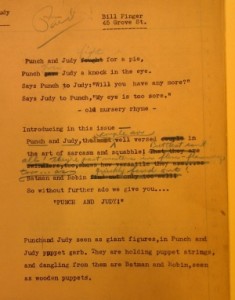
Levitz introduced panelists who he hoped would help express the Golden Age of comics as “lived and seen” and trace the impact of the Golden Age into later comics history and his synopses of their careers pointed out that Emmet’s licensing of toys and action figures changed American childhood experience, O’Neil’s career sparked an era of “social consciousness” in comics, Jafee’s work introduced the tradition of “wiseass” humor into American comics, and that Tye has brought a level of “serious” journalism and biography to comics history by carefully engaging with all those whose lives have impinged on Superman’s development.
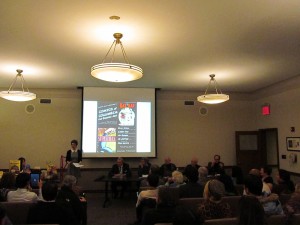
Levit’z general question to his panelists, “Why comics?” sparked a great deal of discussion as each member delved into their own pasts and tried to convey how they became drawn into comics as a career and what part comics have played in their lives. Jaffee supplied the historical context for comics just before World War II. At the “height of the depression”, he said, with “non-existent job prospects and anti-Semitism engulfing Europe”, he and many of his contemporaries found that the “old, established advertizing agencies” in New York would simply reject applications from those with Jewish names. Comics, on the other hand, Jaffee explained, were dominated by Jewish editors, artists, and writers, and beginning to flourish at that time. Since “comic book people were receptive”, Jaffee said, he and his contemporaries “jumped into it”, particularly since it was a paying gig.
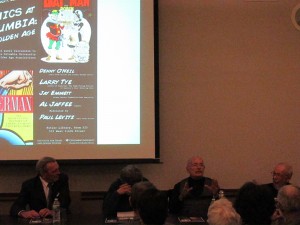
Emmet was born into the comics industry, as the nephew of a Warner board member, and he spoke quite frankly about the “greed” and money-driven aspects of the industry that he perceived growing up. He reflected on his own role in getting lifetime sum of money for Siegel and Schuster, but from a merchandiser’s perspective, Emmet still felt that the lack of pay for the creators of Superman was negligible. Emmet’s most personal story, however, included a “sad story”, as Jaffee described it, of having an entire “silo” of comic books and pop culture memorabilia destroyed by his spring-cleaning wife who didn’t realize their emotional value to him. Needless to say, as the nephew of a Warner executive, Emmet had “every issue” of Golden Age comics in the destroyed collection.
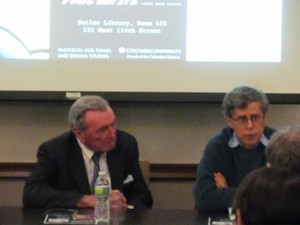
O’Neil spoke about his work post Golden Age, handling many of the same characters. Levitz asked O’Neil why he felt characters like Superman and Batman have lasted so long, and are still relevant today. O’Neil’s eloquent response conveyed a great deal about his philosophy of comics creation. You have to “keep the essence of characters intact but let them evolve”, he explained, a lesson he learned from Julie Schwartz. It’s essential, O’Neil feels, to “let the character reflect what’s outside the window” to remain relevant, and it’s “those allowed to evolve who are still with us”, he concluded.
Levitz humorously pointed out that of the panelists, most “wandered into comics before frontal lobes were fully developed for judgment”, leaving them little choice but to pursue the medium, however, Tye’s position as a biographer returning to comics as subject matter was unique. Tye explained that the question of why Americans embrace the heroes that they do led him to write his biography of the Man of Steel. He, too, however, had a childhood connection to Superman, and loved working on the book for two years, feeling “10 years old” again.
Levitz asked individual panelists some specific questions about their areas of expertise, and started off by asking Emmet to explain just how DC licensing came about. Emmet explained that licensing was a new idea when he was a young publicist, and that he wanted to do “what hadn’t been done before”. Remarkably, his uncle tried to dissuade him from giving up a cushy job to pursue licensing, but Emmet proved predictions wrong by making astonishing sales in his first year of work by simply visiting and personally pitching DC character licensing to every toy company in New York. When Jaffee was asked to talk about daily life working for MAD as a young man, as many cartoonists today will find relatable, he said he simply spent all his time cartooning. Jaffee discussed one unique aspect of working for MAD that stood in contrast to working on superhero comics, that he could “use many characters” and had “freedom” since MAD was a “voracious consumer of material”, but that the pressure could be intense to come up with new ideas since “I was only as good as the next idea I had”.
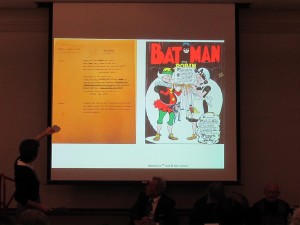
O’Neill was asked to discuss how he managed to write over a 1000 BATMAN stories and still keep material fresh for readers. He admitted that he personally has a “low attention span” and is “bored easily” so tried to bring that reality to his work. He “set the rules” for himself early on with a 5 page document that spread to 35 pages of notes by the end of his career reminding him of guidelines to keep Batman’s universe on track. But after that, as an editor, the key was to hire “good creative people” and give them a “sense that what they are doing is not trash”, and then know, as an editor, when to “step back”. Imbuing creators with a sense that their work has some particular value to readers and fans formed one of the themes for the evening’s discussion. O’Neil memorably commented that while writing comics for him was a “job” and he was cognizant of the need to provide for his family, the “first death” of Robin, decided upon by reader-response phone-calls to “vote” on whether Robin would “survive”, was a wake up call for him about the significance of his work. Ordering food in a deli one day soon after Robin’s “death”, the owner heard he edited BATMAN and declared to the other customers that this was the guy who had “killed Robin”. Previous to that moment, O’Neil said, he had felt he was working in a “backwater” of publishing, but afterwards felt that he was, in fact, a “custodian of post industrial folklore” with deep meaning for readers. It was a sobering moment for him that conveyed a sense of “uncomfortable responsibility” and “enormous privilege”.
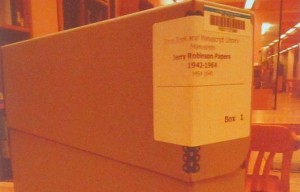
Tye, certainly, agreed with the value of comics as an art form and the essential role of preserving and archiving documents, explaining that two kinds of records are particularly important in preserving comics history, the written documents, such as those produced in the Siegel and Schuster law cases that shed light on the Golden Age of comics, and secondly, the documentation of oral histories from those involved in the early days of comics who are still living. All the panelists agreed that they hope soon Columbia Library will also be able to archive audio recordings of oral histories, and many of the scholars and professionals attending the event in the audience confirmed that they have recordings that might be useful for such an archive. In the age of digital files and increasingly easy transfer between older formats and digital files, why not? Karen Green agreed that it was a possibility for Columbia to attempt to preserve these files in the future as part of their comics-related collection.
Levitz’ final assessments about the contribution of his panelists to pop culture included Emmet’s role in “creating American childhood” through licensing, Jaffee’s pioneering persona in encouraging us to “question everything” through his work on MAD, and the social realities that O’Neil introduced and maintained in comics, as well as Tye’s invaluable contribution to uncovering the history of Superman as a cultural phenomenon. It was certainly an evening spent celebrating comics, and in particular, a time to look back on the seminal periods in the development of comics that were directed in their development by true pioneers. What better way to dignify the impact of comics than to preserve their original documents for future study and appreciation? Collecting and archiving comics materials at Columbia has quickly moved from a new program to a steady stream of worthy additions, and the panel celebration suggested increasing momentum in preserving comics history at Columbia.
Hannah Means-Shannon writes and blogs about comics for TRIP CITY and Sequart.org and is currently working on books about Neil Gaiman and Alan Moore for Sequart. She is @hannahmenzies on Twitter and hannahmenziesblog on WordPress.




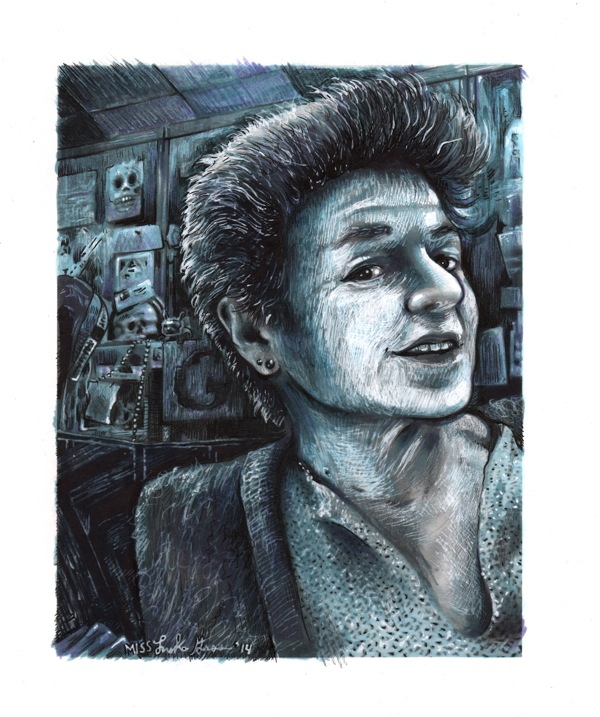
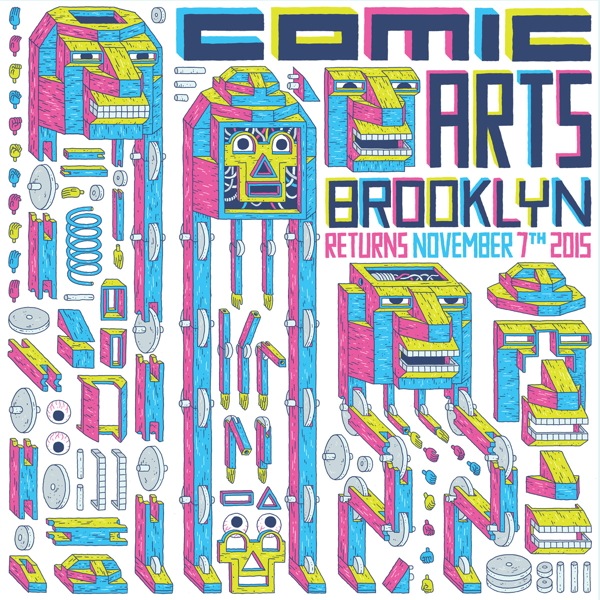







































Thanks for the vote of confidence, Heidi! Paul Karasik leaves huge shoes to fill, but I’ll do my best.
I like this. A lot. Congratulations, Karen! xo
Very good news. Congratulations Karen.
Congrats Karen! If you need any help, just send up a flare!